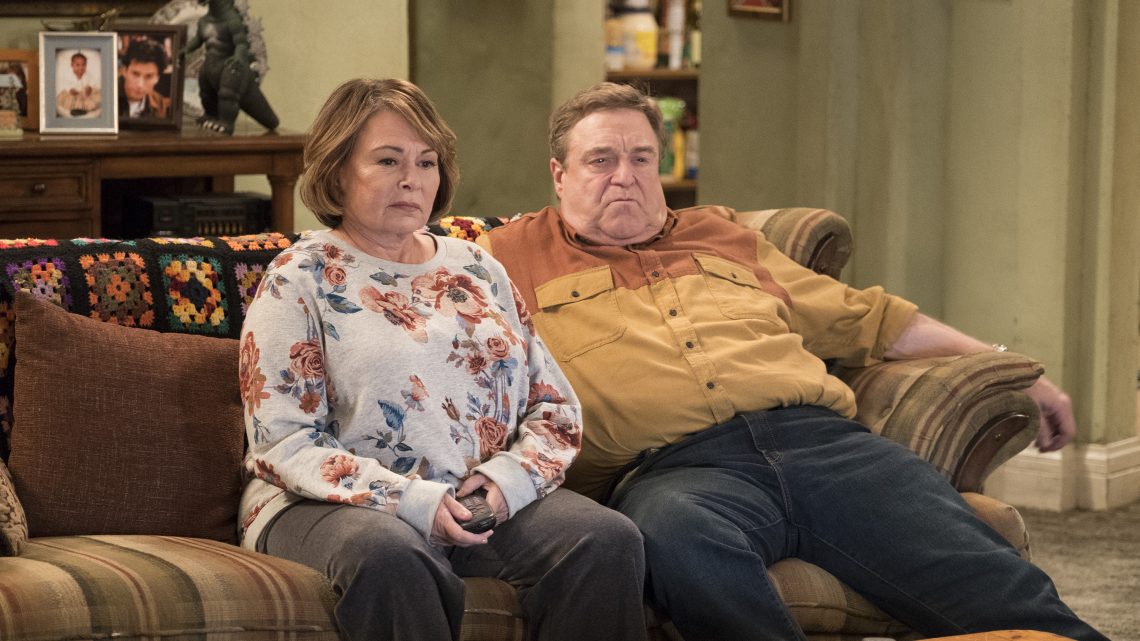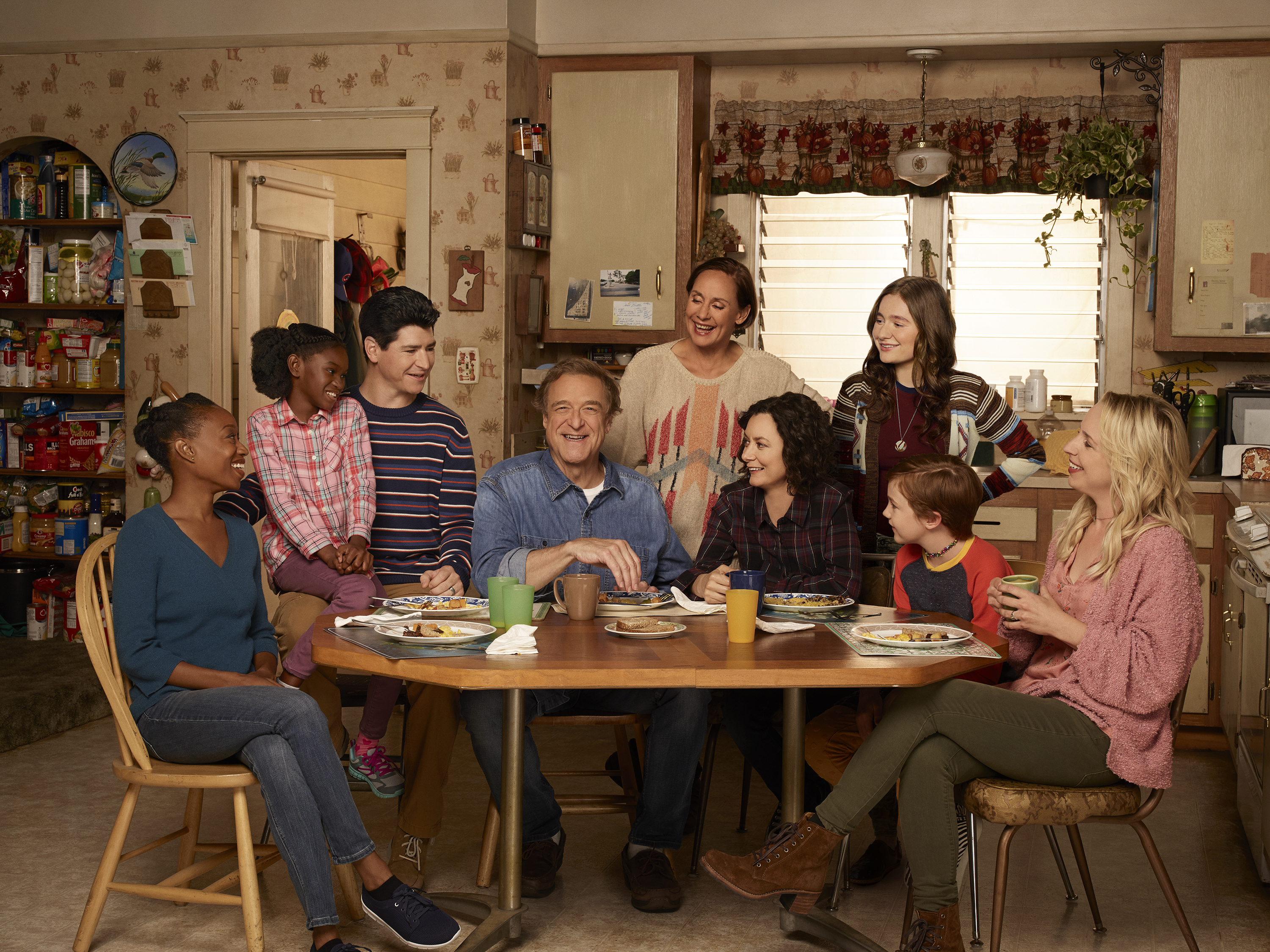
‘The Conners’ Creates More Problems Than It Solves
October 17, 2018 Off By Taylor HoskingRoseanne Barr may be political dynamite but fictional character Roseanne Conner was still an iconic, if problematic, TV matriarch when writers on The Conners decided to kill her off via an opioid overdose.
In September, after Barr apparently learned about the writers’ intentions, she expressed her outrage on the YouTube show Walk Away. “Oh yeah, they killed her,” she says in the interview. “They have her die of an opioid overdose... It’s so cynical and horrible. She should have died as a hero or not at all… It wasn’t enough to [fire me], they had to so cruelly insult the people who loved that family and that show."
It was unclear who ABC thought they were pleasing with a Barr-less reboot. Her supporters were calling for a boycott of The Conners, even before they learned how her character would be written off. On the other end of the spectrum, some of Barr's critics have reveled in making fun of her character’s death, whether they plan to watch or not. The Conners’ Twitter account has made it abundantly clear, however, that satisfied fans do exist, retweeting a stream of solely positive reactions. But no matter how many people claim to be cool with the new show, or how skillfully the writers wove Roseanne's death into the plot, The Conners feels like a misplaced attempt to continue the franchise no matter what. Frankly, it's not worth it.

Barr's former colleagues have said her character's death was solely intended to shed light on an important American issue and wasn't meant to be disrespectful. But on Tuesday night’s premiere of The Conners, another reason for choosing an opioid overdose became clear: It’s actually a pretty good metaphor for how Barr’s colleagues feel about her controversial fallout with ABC. After finding out she likely died of an overdose instead of a heart attack, her family discovers secret stashes of pills that suggest their matriarch’s drug problem was deeper and went on for longer than any of them realized. Her downfall was self-inflicted and something her unknowing family couldn’t save her from. Sound familiar?
One gets the feeling that Barr went farther than her colleagues thought she would with her racist Twitter tirade—or at least stirred up more controversy than they thought she would. That parallel sets up some really meta moments in the premiere, like when Dan Conner (John Goodman) comforts his daughter Darlene (Sara Gilbert) saying, “[Roseanne] was going to do what she was going to do. She never listened to a damn person in her life… We couldn’t even get her to close her robe when she picked up the neighbor’s paper in the morning.”
Barr’s support of Trump and history of racism on Twitter were not exactly secrets before Roseanne was revived last year. But the original show was pretty apolitical, whereas the reboot tried to position itself as a sort of bipartisan peace offering for a fractured middle America, with Roseanne and her sister Jackie (Laurie Metcalf) feuding over politics. Roseanne defends her grandson’s queerness to his bullies and her husband Dan, and she even has a token black granddaughter. But the show wasn’t as woke as it liked to think. A line in the second episode of the Roseanne reboot hit a nerve for implying that white audiences don’t need to watch shows like Blackish and Fresh Off the Boat about black and Asian families.
The way her character was killed off, while not handled in a disrespectful way, is still a stigmatized, traumatic, and, for some people, embarrassing way to lose a family member. It begs the question of whether Roseanne, the character, deserved to die that way. A parallel might be if the sexual assault allegations against Bill Cosby came to light in the 1980s and writers for The Cosby Show decided to write his character off by making him a victim of police brutality. If the writers positioned their choice as an opportunity for a productive dialogue while ignoring the fact that the character’s fate is also a painful, traumatic death, the frustratingly unknowable subtext would linger: Is the character being punished for the actor’s wrongdoing?
The creative team behind The Conners tried to handle Roseanne’s exit with grace, guiding the audience and the characters through the complicated experience of losing a central matriarch by writing in somber moments as well as humor. The way they’ve treated her exit and the continuation of the show is overwhelmingly postured as a way to honor her legacy with moments like the opening credits when the camera hovers ominously over her empty chair at the kitchen table until Darlene finally sits in it. As actress Sara Gilbert explained at Paley Fest on Tuesday, “We wanted to make a really honest episode, and channel whatever we were feeling into the episode.”
But even in attempting to honor her, the show raises another confusing moral dilemma, because Barr feels insulted that The Conners exists at all. Barr told VICE News, “I don't keep in touch with anyone on the show. I've been removed from the process of my life's work. It's like the worst thing they could have possibly done to me, was to fire me from my own show and let other people write my life story.” But moments during the show misleadingly imply the characters believe they have Roseanne's blessing to joke about her death. After Roseanne’s daughter Becky Connor-Healy (Alicia Goranson) asks Darlene if they’re “horrible for laughing” about their mom’s death, Darlene replies, “Laughing inappropriately is what mom taught us to do.” (It’s a line they’ve also promoted in their branding.)
So let’s recap: People who think Barr deserved to be kicked off the Roseanne reboot are left with her character’s looming presence in The Conners. Those upset that Barr was written out of the family may find comfort in the new show's reverential tone, but they'll be unable to escape the fact that the character was killed off. Plus, any future references to Roseanne's legacy will very obviously be made without the consent of the woman who spent decades of her life creating the character.
With so many dilemmas compounding in a single half-hour sitcom, was The Conners really worth it? Can witty writing and good acting save a nostalgia-driven reboot that was probably doomed from the outset? No commercial success or comedic deftness will justify the message that a show born from controversy and nearly felled by racism still deserves a chance to prove its alleged good intentions at this political moment. The Conners is a project failed not in execution but in premise.
Sign up for our newsletter to get the best of VICE delivered to your inbox daily.
Follow Taylor Hosking on Twitter.


